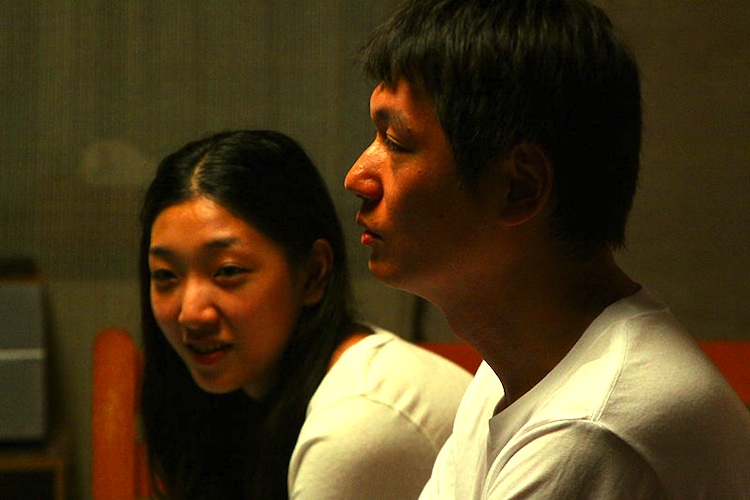By Joe Bendel. In the 1960’s and 1970’s, many Korean-Japanese immigrated back to their homeland. Unfortunately, they chose the wrong one. With family at risk in the DPRK, active members of Japanese-North Korean friendship associations had no choice but to tow the party line. Yet, the implications of the basic foodstuff care packages they sent to loved ones spoke volumes. Granted a special three month visit for medical reasons, one such “repatriated” North Korean reconnects with his guilt-ridden family in Yang Yonghi’s devastating Our Homeland, which has been selected by Japan as their official foreign language Academy Award submission.
Yun Sung-ho most likely has a brain tumor. Given the woeful inadequacies of the North Korean medical system, he is allowed to briefly return to Japan—after a five year waiting period. He is fortunate his father is the president of the North Korean society, but he will still be monitored the entire time by his minder, Mr. Yang. Regardless, his family is grateful to see him again, especially his poor mother. Likewise, Rie is delighted to see her beloved brother again, but she cannot ignore certain ironies, like her brother developing malnutrition in the “Workers’ Paradise.” Yes, she is our kind of free-thinker and the unambiguous conscience of Our Homeland.
Based on writer-director Yang Yonghi’s own family experiences recorded in Dear Pyongyang and a subsequent documentary, Homeland is even more direct in addressing conditions in North Korea. Perhaps liberated by the fictional context, the film explicitly blames the DPRK for the misery of its citizens. There is no inclination towards moral equivalency. In fact, there is a clear affection for the Ozu-like quiet serenity of Japan.
While Yang’s script is unusually honest and challenging, her leads really make it hit home. Dynamic and vivacious but deep as a river, Sakura Andô is simply remarkable as Rie. It is an award caliber performance. Conversely, it takes a while for Iura Arata’s pitch-perfect portrayal to sink in, striking uncomfortable chords between bitterness and resignation. Boasting a top flight ensemble from top to bottom, Homeland is also distinguished and humanized by memorable supporting turns from Kotomi Kyôno as Yun’s ex Suni and Tarô Suwa as his loving blacksheep capitalist Uncle Tejo.
An assured narrative debut, Yang masterfully controls the mood and tone, despite the almost complete lack of soundtrack music. Her approach is intimate and not surprisingly documentary-like, but Homeland never feels overly talky or draggy. Indeed, the emotional drama never slacks.
Our Homeland is a deeply compassionate film, but it is also somewhat angry, plainly calling an older generation to account for sacrificing their children on ideological grounds. Its unmistakable critique of North Korean Communism might not sound like Academy fodder, but the foreign language division can be surprising – in a good way. After all, The Lives of Others won the Oscar and Andrzej Wajda’s Katyn was nominated before it even had American distribution. Regardless, Our Homeland would be a worthy nominee that deserves an international audience.
LFM GRADE: A
Posted on December 18th, 2012 at 11:59am.
